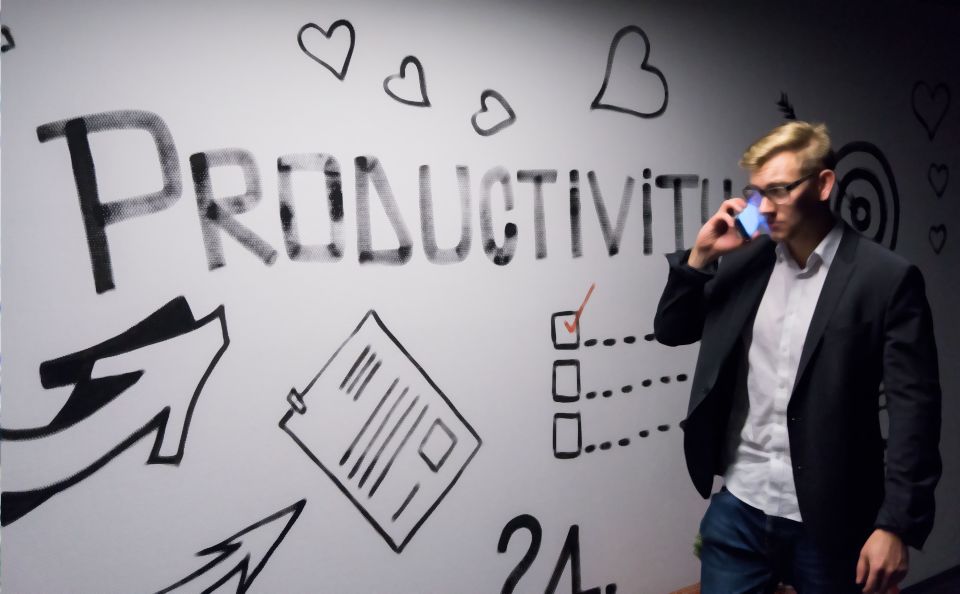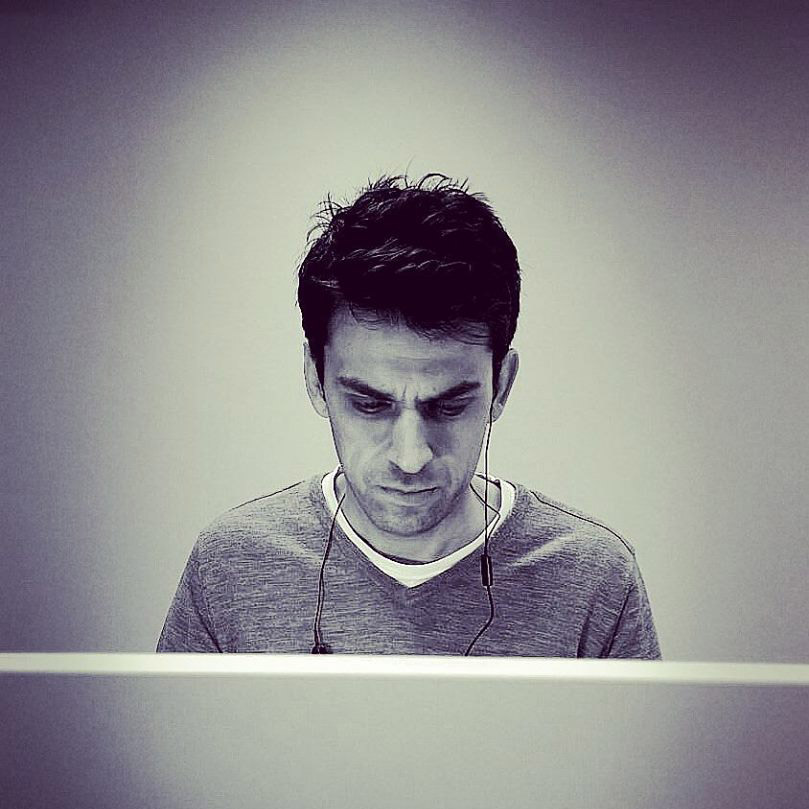“Productivity is overrated. Just focus on doing good work. Every day when you go to bed, you need to make sure you did the thing that gives your life meaning” – Austin Kleon
These days there’s a lot of pressure to hustle. We live in a time when technology has made it possible for us to boost productivity more than ever. So much so, we put it on a pedestal whereby it’s almost “cool” to be exhausted. And burnout is a right of passage for any founder, entrepreneur or indeed freelancer worth his or her salt.

From the juggler analogy trying to manage multiple projects, to the tireless hamster on an endless wheel of tasks and progress, we’re told that being productive is what entrepreneurship and life itself is all about. And I’ll be the first to admit, I bought into the concept big time.
I wanted it all, and believed that I could do it with ease. The day job, the side hustles, more revenue streams, family life, hobbies, time for continuous learning, everything. And without breaking a sweat. Or losing my cool. I was wrong. Thankfully, I found my way.
What is productivity culture?
Rewind about 12 months. I’d read enough about the productivity culture malarkey to work out that I simply wasn’t getting enough done. Now, before we get to what’s wrong with productivity culture and how to interpret it for your benefit, first let’s have a look at the nature of the beast that it is as typically seen.
Productivity culture is everywhere. From the thousands of books and productivity gurus offering the “secret sauce” via online training courses and e-books, to new ways of working. The idea that we need to strive to be as productive as possible to get anywhere is pushed upon us. If, that is, we want the professional success we crave and the life we desire.
The “noise” around this is usually about doing more and achieving more in your day/week/year/life. ‘Start by waking at 4 am, live like a navy seal, meditate, do yoga, go running, read 30 books per week, learn a language using a mobile app etc, etc. Yikes.
And therein lies the big problem with productivity culture. Most of the time it focuses on the wrong element. Doing as many things as possible instead of making sure, as New York Times bestselling author Austin Kleon likes to point out, you do something good. Something that gives your life meaning both professionally and personally.
Being productive should not be about the volume of things you can do. It should be about doing your [personal] best towards creating/doing good work. That’s your real goal. Or hustle. And yes, I almost forgot, this means setting aside (can’t believe that I’m using that phrase for something so important) time for rest, relaxation, and recreation. Because let’s face it, it can take real courage to say no to more “productivity” of the type I mentioned earlier and yes to R&R – and heaven forbid – play.
Get out of the productivity culture cycle
So how do you make a change for the better? Because you know deep down that it will be for the better. Both for your own personal growth and happiness as well as your business success.
Define what productivity means to you
What does productivity look like to you? If it’s a never-ending to-do list then you are doing something wrong. Because just like constantly talking isn’t necessarily communicating, constantly working and being on the move isn’t necessarily productive. It’s something called busyness.
One productivity guru who is worth listening to on this is Tim Ferris. His focus is firmly on helping people tap into their inner productive selves, so they can “rescue themselves from the treadmill of wasted time and effort”. While it’s possible to make a shed-load of money working just four hours a week while simultaneously learning two languages, flamenco and Aikido is up for debate, but he has some neat ideas which help you to identify what’s important for your individual situation.
In his book, the Four-Hour Work Week, Ferris lays out in simple terms what productivity means for him in a typical day. It boils down to this: “Not trying to do too many things at the same time”, and following these 4 rules:
- Create small morning rituals – anything from making your bed, putting on your favorite coffee, and then while you’re waiting doing 10-15 reps of something, and perhaps writing an entry in a journal.
- Focus on the 1-2 most important things every day. I know, the to do list may be long, but focus on the things at the top. And the rest will follow.
- Say, “No,” to a lot of things. This one is self-explanatory. But if you need help, say no especially to distractions. They are the thief of your most valuable resource: time.
- Acknowledge your limits/handicaps, then change them. We all have beliefs about things and ourselves which we think hold us back. Recognize them and change the negative narrative to a positive one.
When you get the urge to stop working, just stop
Science proves that working less can actually help you get more done. Truth is stranger than fiction and all that eh? But, and this is a big but, only if you unplug fully and really catch your breath.
After looking into concepts such as mindfulness and “headspace”, in my ignorance I made fun of it. Coming from a working class family background, I was always taught to simply “get on with it”. But obviously my view on this changed over time.
Especially when I saw with my own eyes a former boss of mine struggling with stress, 12-14-hour work days, never taking breaks [only for sipping on Red Bulls], and constantly putting out fires. Things changed when he dove into the word of mindfulness and head-space with the help of a yoga/meditation guru. The change I saw in him was amazing.
What’s the lesson?
The lesson for me is still crystal clear. “Getting on with it” should not just mean ticking tasks of a huge list. And then looking with satisfaction at how many of those things you have accomplished. It should mean doing a task well. And with your whole self. Being present, in the moment. And then enjoying it. Instead of always feeling like you should be somewhere else.
And this is why it’s important that when the urge to stop and be somewhere else comes, you don’t just listen to it. You act on it. Even if it means just going for a short walk or taking the afternoon/evening off to relax in whatever way you prefer.
What’s more, when you have downtime available, step away completely from work. Just get some physical and emotional distance from it all. Because if you don’t, you will become less resilient in the face of stressful work situations.
Create an Anti-To-Do List
Wait, what? Yes you heard right. This idea has been around for a while. The way it works is simple. Instead of having a single list each day, like many of us do, you have two. Your Anti-To-Do List is the the account of real progress for that day. If like me you have a lengthy list of things to do but find yourself side-tracked on other “unexpected” tasks that come up, then you need one of these. It can actually be really powerful, as in many ways it’s your “Done” list. You will look back and see the amount of things you got done, even if they weren’t on your list. Typically, they will be much more important stuff linked to personal matters, family, etc. The contents of this list will make you smile and laugh, and see your productivity happiness levels soar. Trust me.
Ask not what you can do for you, but what you can do for others
JFK said some pretty wise things during his short life, and the above paraphrased (and slightly amended) quote is one of his best. And the reason is simple. It actually makes you feel better. Stanford researcher and author Emma Seppala has done some vital work on this topic, as well as how workaholic couture is damaging society at large. She claims that “those people who consider the positive parts of their job at the end of their workdays – particularly the ways in which their work benefited others – had higher levels of well-being and happiness.” Fortunate coincidence? I think not.
How does my little venture help others? A valid question. But remember, it’s not just teachers, care workers, or police and the like who are the beneficiaries of professional gratitude. Each and every job has positive aspects. You just need to have the right attitude towards your work. For me, I break it down to simple things like the fact my efforts help pay for my family’s housing and schooling. And that my positive, helpful attitude has often seen me act as a kind of mentor to other, younger or less experienced colleagues.
The moral of the story
So the problem with productivity culture, or hyper-productivity, is simple. It’s not mindful. Masquerading as purpose-driven, in reality it can suck the soul out of you. What’s more damaging is that it is more or less self-focused. Which massages your ego rather than builds your confidence. It’s about accomplishing goals for yourself, how much money you can make, what stuff you can buy, and the name you can make for yourself. ‘Instead of what?’ You might say. Instead of helping or serving others.
At the end of the day, your professional life – and life in general – should not be all about achieving as much as you possibly can, nor making as much hard cash as you can. Call me a romantic but it should be about love. Not the erotic variety, don’t get me wrong, but the kind of love that helps us to see ourselves in each other. Now that’s productive.
A full circle
Going back where this began, with Kleon’s simple wisdom, the message is clear and simple. “We’re in this lifehack moment where everybody is supposed to make themselves into some kind of cyborg. When really the important thing is that when you hit the pillow at night, did you do the things that feed you, make you mindful? Did what you do today matter to you?”
